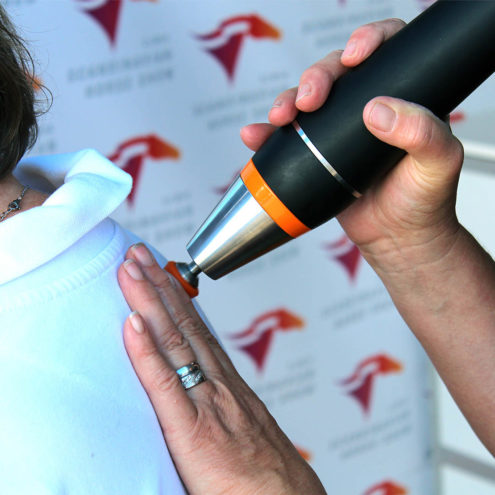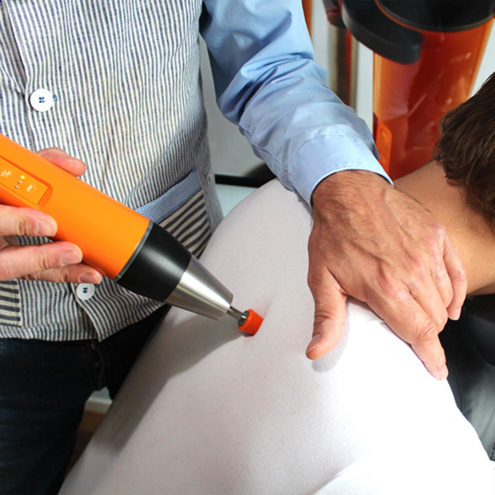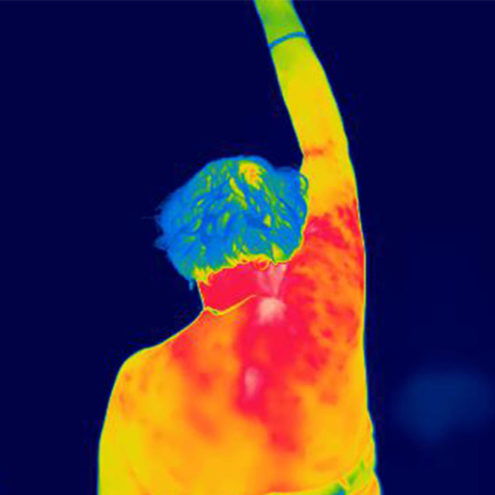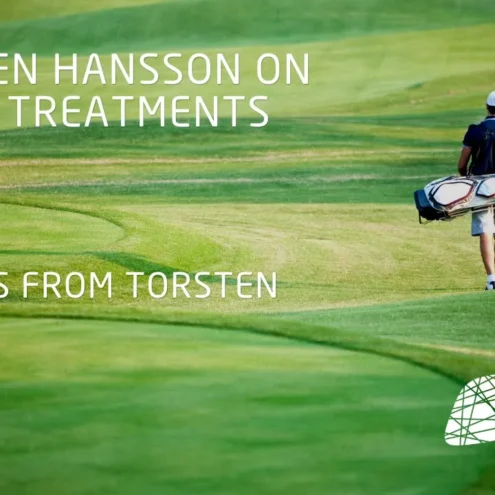Hormonal Migraine – What You Need to Know

Migraine is a complex and very painful type of headache that can significantly affect people’s lives. In this comprehensive article, we will explore hormonal migraine in detail, reviewing its causes, symptoms, treatment options and how Fascia Clinics can offer support with a fascia perspective. Our aim is to give you an in-depth understanding of hormonal migraine and how it can be best managed.
health problems that affect both men and women, but there are unique aspects of back pain that are particularly relevant for women.
What is hormonal migraine?
Hormonal migraine is a specific type of migraine that is closely linked to hormonal changes in the body. To understand what hormonal migraine is, it is important to have a basic knowledge of migraine in general. Migraine is not just an ordinary headache; it is a complex neurological disease involving different phases and symptoms.
Hormonal migraine differs from other types of migraine in that it is strongly linked to the hormonal fluctuations that women and, in some cases, men, experience at different stages of their lives.
How Hormones Affect Migraines
Women’s menstrual cycle and migraines
A large proportion of women with migraine experience attacks during menstruation. Many also find that the pain becomes more intense during this period. This link between the menstrual cycle and migraines has to do with the natural hormonal changes that take place in the body during this time.
During the menstrual cycle, fluctuations in the levels of the female sex hormones estrogen and progesterone occur. These hormones can affect blood vessels and the nervous system, which in turn can trigger migraine attacks in people who are genetically prone to this condition.
Hormonal changes during life
In addition to the menstrual cycle, hormonal changes in the body can also trigger or influence migraines at other stages of life. For example, hormonal changes that occur during pregnancy, breastfeeding and menopause can also affect the frequency of attacks.
It is important to understand that these changes vary from individual to individual and that not all people with hormonal changes will experience migraines. Some people are more susceptible to hormonal migraine than others.
Hormonal treatment and its impact on migraine
Some women use hormonal contraceptives such as the contraceptive pill or hormone replacement therapy (HRT) for various reasons, such as regulating the menstrual cycle or relieving menopausal symptoms. It is important to be aware that these hormonal treatments can affect migraine attacks, both positively and negatively.
Some women may find that their migraines improve when they use hormonal contraception or HRT, while others may find that their migraines get worse. Therefore, if you suffer from migraines or have a history of migraines in your family, it is essential to discuss these treatments with a doctor or specialist.
Symptoms and diagnosis of hormonal migraine
Common symptoms
The symptoms of hormonal migraine are often similar to those of other types of migraine. The most common symptoms include:
Intense headache: Migraine attacks are often characterized by a severe, throbbing headache, usually on one side of the head.
Nausea and vomiting: Migraine attacks are often accompanied by nausea and vomiting, which can make the discomfort worse.
Light and sound sensitivity: People with migraines can be sensitive to light and sound, and bright lights or loud noises can make the pain worse.
Aura: Some individuals experience so-called migraine auras before an attack occurs. The aura may include visual changes, such as flashes of light or spots, or sensory changes such as numbness or tingling in the body.
Diagnostic criteria
To make the diagnosis of hormonal migraine, your doctor will evaluate your symptoms and medical history. It is important to provide your doctor with details of your migraine attacks, including when they occur in relation to your menstrual cycle or other hormonal events.
There are also certain diagnostic criteria that help the doctor establish whether your migraine attacks are linked to hormonal changes. These criteria may include that the migraine attacks occur regularly in association with hormonal events and improve as hormonal fluctuations decrease.
Treatment options for hormonal migraine
Lifestyle changes
Managing hormonal migraine often requires lifestyle changes. Here are some measures that can be beneficial:
Diet: Avoid trigger foods that can trigger migraine attacks. Certain foods, such as chocolate, cheese and red wine, are known to trigger migraines in some people.
Sleep: Make sure you get enough sleep and avoid sleep deprivation, which can increase the risk of migraine.
Stress management: Learn ways to manage and reduce stress, as stress is a common trigger for migraines.
Medical treatment
If your migraine attacks are severe or frequent, your doctor may consider medical treatment. There are various medicines available to prevent migraine attacks or treat them when they occur. These medicines may include painkillers, triptans or prophylactic medicines taken regularly.
It is important to discuss appropriate treatment options with your doctor, especially if you have hormonal migraine and are using hormonal contraceptives or HRT.
Alternative treatment methods
In addition to traditional medicine, there are various alternative treatments that some people have found to be effective in managing hormonal migraine. These can include acupuncture, massage, yoga, etc. It is important to discuss such options with your doctor before trying them, and to supplement them with other treatment measures if necessary.
Prevention
To minimize the risk of hormonal migraine, you can consider the following preventive measures:
Correct sitting and sleeping positions
Maintaining good posture and using ergonomic equipment when sitting at a computer or working can reduce the risk of tension in the neck and shoulders, which in turn can reduce the risk of migraines.
Activity Adaptations
If you take part in physical activity or sport, make sure to exercise with the right technique and avoid overexertion. Adapt activities if you feel they trigger migraines.
Hormonal migraine and the FasciaClinics
At FasciaClinics, we understand the importance of a holistic approach to managing hormonal migraine. Our experts can create individulized treatment approaches and advice to help you better understand and manage your hormonal migraine.
We offer fascia treatments that can help relieve tension and pain in the body, including areas that can affect migraines, such as the neck and shoulders.
Contact us for further support
If you or someone you know suffers from hormonal migraine and needs professional care and advice, don’t hesitate to contact the FasciaClinics. We are here to help you on the road to better health. Our expertise and experience can make the difference in managing hormonal migraine and improving your quality of life.
 Search
Search


































